#mentalhealthwarrior
Text

#mentalhealth#mentalillness#brainhealth#neurodiversity#mentalhealthawareness#mentalhealthmatters#mentalhealthsupport#mentalhealthadvocacy#mentalhealthwarrior#mentalhealthrecovery
26 notes
·
View notes
Text
How do I come out of mental illness?
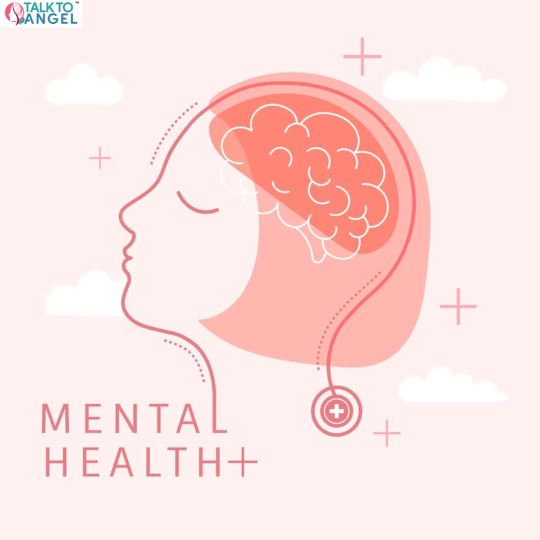
Here are some steps you can take to work towards overcoming mental illness:
Recognize and Accept: The first step is to recognize that you may be experiencing mental health challenges and to accept that it's okay to seek help. Mental health issues are common and treatable, and seeking support is a sign of strength, not weakness.
Reach Out for Help: Talk to a mental health professional or counselor through platforms like TalktoAngel. They can provide a safe and non-judgmental space to discuss your feelings, thoughts, and concerns.
Follow Professional Guidance: Work closely with your mental health professional to understand your condition and create a personalized treatment plan. This may include therapy, medication, lifestyle changes, or a combination of approaches.
Prioritize Self-Care: Engage in activities that promote physical and emotional well-being. This can include regular exercise, maintaining a balanced diet, getting enough sleep, and finding activities that bring you joy.
Build a Support System: Reach out to friends, family members, or support groups who can provide emotional support and understanding. Talking to others who have experienced similar challenges can be reassuring and helpful.
Practice Mindfulness and Stress Reduction: Techniques such as mindfulness, meditation, and deep breathing exercises can help reduce stress and improve emotional well-being.
TalktoAngel can help by providing you with access to qualified and experienced mental health professionals who can offer guidance and support tailored to your unique needs. Their expertise can be instrumental in helping you navigate the challenges of mental illness and supporting you in your journey towards improved mental well-being.
#sad#loveyourself#suicide#depressionawareness#ocd#awareness#mentalhealthquotes#quotes#depressed#mentalhealthwarrior#depressionhelp#anxietyawareness#memes#wellbeing#positivity#stress#support#borderline#mentalillnessrecovery#art#covid#inspiration#mindset#positivevibes#breakthestigma#chronicillness#mentalillnessmemes#anxietyrelief#mentalwellbeing#mental
2 notes
·
View notes
Photo

Self isolation when Overwhelmed? Maybe you had yo solve all your own problems! #Overwhelmed #SelfIsolation #mentalwellbeing #mentalwellness #mentalhealthwarrior #MentalHealthMatters #ProblemSolving #problemsolvingskills #MentalHealh #childhoodtrauma https://www.instagram.com/p/CoVd6_tOMqu/?igshid=NGJjMDIxMWI=
#overwhelmed#selfisolation#mentalwellbeing#mentalwellness#mentalhealthwarrior#mentalhealthmatters#problemsolving#problemsolvingskills#mentalhealh#childhoodtrauma
5 notes
·
View notes
Photo
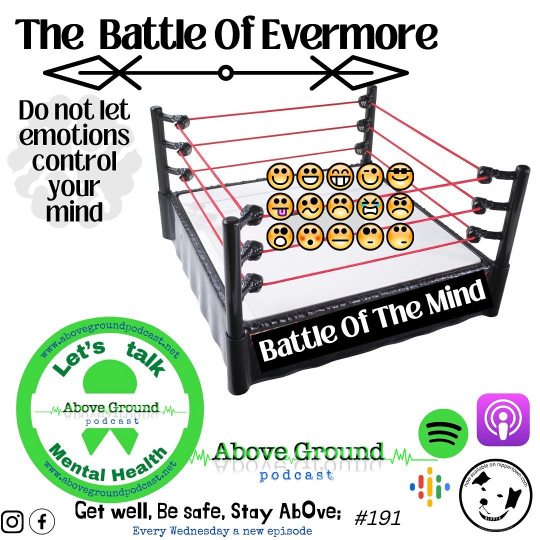
Back again with a new episode !!! Check out this week’s battle in the ring(mind). Talked about thoughts and emotions moshing around in the mind. How it can be easy to let your thoughts dominate your emotions and dictate your reactions to events. Fight back! Work towards a balance of letting go and sticking to he facts…. Stay in the #wisemind my friends… listen on #nippertown #spotifypodcast #applepodcasts #googlepodcasts and anywhere you #podcast #podcastersofinstagram #mentalhealthawareness #mentalhealthadvocate #mentalhealthwarrior #cognitivepsychology #brainhealth #letstalkmentalhealth #endstigma #stopstigmatizingmentalhealth #heal #growthwork #fear #doubt #emotions #strongertogether #peersupport #getwell #stayabove https://www.instagram.com/p/CoVxU6vsiS3/?igshid=NGJjMDIxMWI=
#wisemind#nippertown#spotifypodcast#applepodcasts#googlepodcasts#podcast#podcastersofinstagram#mentalhealthawareness#mentalhealthadvocate#mentalhealthwarrior#cognitivepsychology#brainhealth#letstalkmentalhealth#endstigma#stopstigmatizingmentalhealth#heal#growthwork#fear#doubt#emotions#strongertogether#peersupport#getwell#stayabove
5 notes
·
View notes
Photo
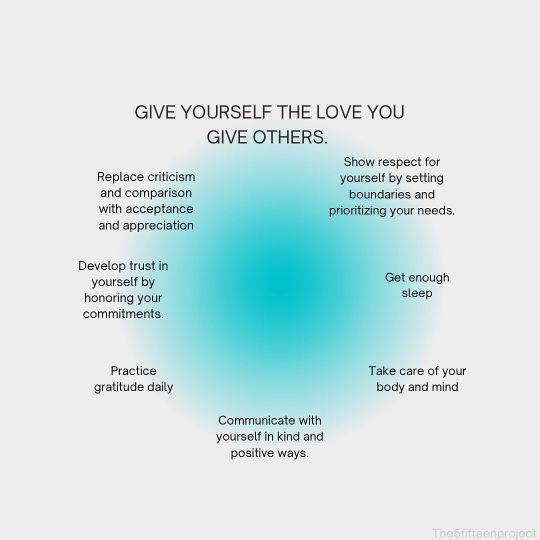
You too deserve that love. 🖤 #mentalhealthawareness #mentalhealth #quotes #quoteoftheday #light #the5fifteenproject #mentalhealthmatters #yourenotalone #inittogether #suicideprevention #mentalhealthwarrior #mentalhealthquotes #mentalhealthisimportant #mentalillness #mentalillnessawareness https://www.instagram.com/p/ClJRR95OUoj/?igshid=NGJjMDIxMWI=
#mentalhealthawareness#mentalhealth#quotes#quoteoftheday#light#the5fifteenproject#mentalhealthmatters#yourenotalone#inittogether#suicideprevention#mentalhealthwarrior#mentalhealthquotes#mentalhealthisimportant#mentalillness#mentalillnessawareness
2 notes
·
View notes
Photo
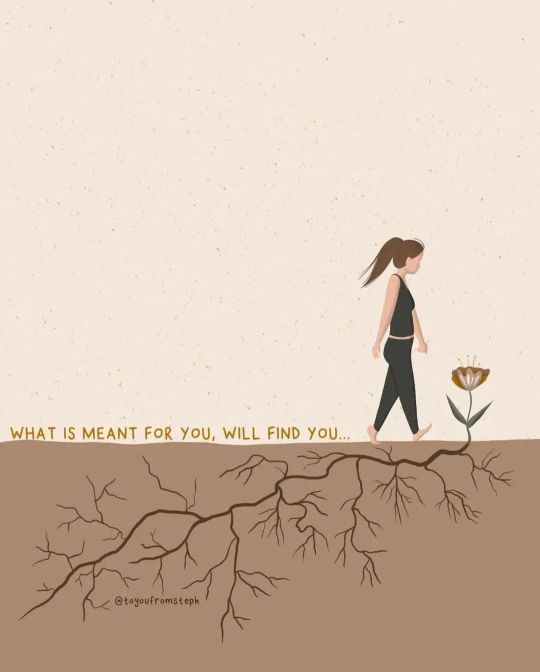
Follow @atreef for more! Art @toyoufromsteph 💪 Tag 🔖 | Share 📢 l Comment 📝 What is meant for you, will find you. 👏⭐️ @toyoufromsteph #lifedream #mentalhealth #councelling #mentalhealthawareness #mentalhealthmatters #mentalillnessawareness #endthestigma #mentalhealthsupport #mentalhealthisimportant #growing #mentalhealthwarrior #mentalstrength #healthmatters #mentalhealthhelp #mentalhealthcare #selfhealingjourney #loveheals #healyourself #stress #psychotherapy #mentalhealthawarness #therapistsofinstagram #mentalhealthtips #mentalhealthweek #itsoknottobeok #anxietyrecovery #physicalhealth #anxious #letsgrow #recovery (at Houston, Texas) https://www.instagram.com/p/CcyKBaoug86/?igshid=NGJjMDIxMWI=
#lifedream#mentalhealth#councelling#mentalhealthawareness#mentalhealthmatters#mentalillnessawareness#endthestigma#mentalhealthsupport#mentalhealthisimportant#growing#mentalhealthwarrior#mentalstrength#healthmatters#mentalhealthhelp#mentalhealthcare#selfhealingjourney#loveheals#healyourself#stress#psychotherapy#mentalhealthawarness#therapistsofinstagram#mentalhealthtips#mentalhealthweek#itsoknottobeok#anxietyrecovery#physicalhealth#anxious#letsgrow#recovery
9 notes
·
View notes
Text
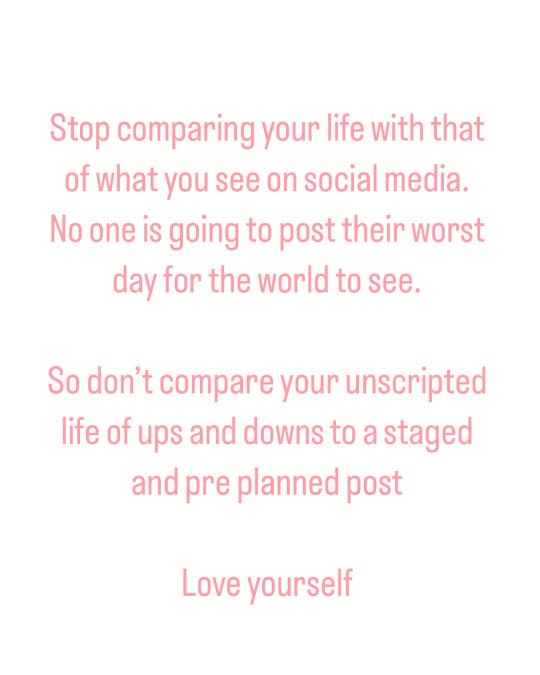
#mentalhealthblogger#mentalhealthquotes#mentalhealthwarrior#mentalhealthadvocate#mentalhealthsupport#self care reminder#self care#i love you#love yourselves#love yourself#stop comparing
5 notes
·
View notes
Photo
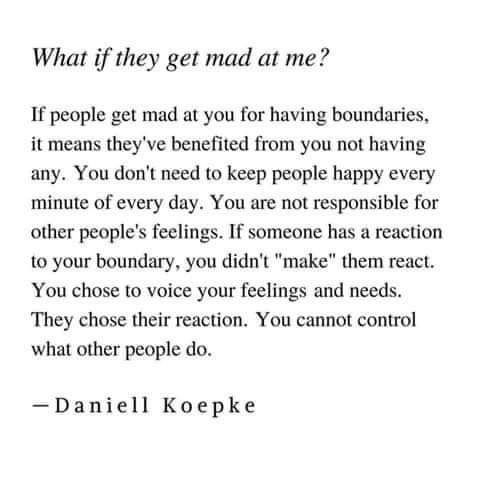
Something I'm still trying to get through my own head. Boundaries are important. So I wanted to share this because I dont want anyone to ever forget this, and never give in to someone pushing your boundaries. Yes it's easier said then done. But we got this. #mentalhealthrecovery #mentalhealthwarrior #mentalwellnessmatters💚 #mentalhealthawareness #chronicillnesswarrior #potssyndrome #tbisurvivor #tbirecovery #dysautonomia #boundariesarehealthy https://www.instagram.com/p/ChiiyceubDz/?igshid=NGJjMDIxMWI=
#mentalhealthrecovery#mentalhealthwarrior#mentalwellnessmatters💚#mentalhealthawareness#chronicillnesswarrior#potssyndrome#tbisurvivor#tbirecovery#dysautonomia#boundariesarehealthy
2 notes
·
View notes
Photo
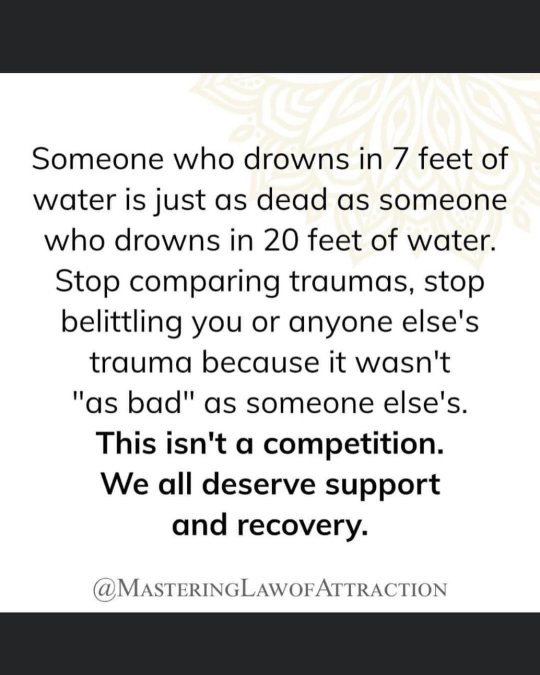
This is popped up on my Facebook feed. It's so accurate! Stop dragging yourself down because your comparing yourself to others. NOT YOUR SHOES DON'T WALK IN THEM! #mentalhealth #mentalhealthwarrior #mentalhealthsurvivor #ptsd #ptsdrecovery #ptsdsurvivor #ptsdwarrior #invisibleillness #invisibleillnesswarrior #anxiety #anxietywarrior #deppresion #deppresionwarrior #tbi #tbiwarrior #traumaticbraininjury #traumahealing #traumaticbraininjurywarrior #ocd #ocdwarrior #adhd #adhdwarrior #selfharmwarrior #greenwitch #mentalhealthwitch #witch #witchcraft #greenwitchcraft #emotionaldamage #emotional https://www.instagram.com/p/CebtHwCu6vH/?igshid=NGJjMDIxMWI=
#mentalhealth#mentalhealthwarrior#mentalhealthsurvivor#ptsd#ptsdrecovery#ptsdsurvivor#ptsdwarrior#invisibleillness#invisibleillnesswarrior#anxiety#anxietywarrior#deppresion#deppresionwarrior#tbi#tbiwarrior#traumaticbraininjury#traumahealing#traumaticbraininjurywarrior#ocd#ocdwarrior#adhd#adhdwarrior#selfharmwarrior#greenwitch#mentalhealthwitch#witch#witchcraft#greenwitchcraft#emotionaldamage#emotional
2 notes
·
View notes
Text
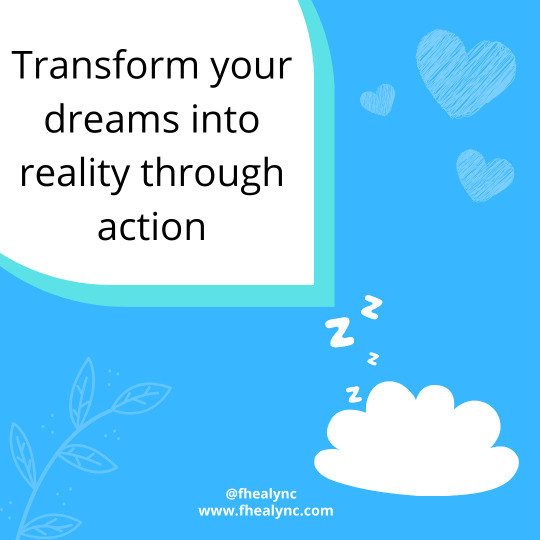
It starts with a vision, fueled by passion and relentless determination. Believe. Achieve. Succeed.
#DreamsToReality#UnleashYourPotential#selfcare#MakeItHappen#love#selflove#power#motivation#mindwellness#wellness#mondaymotivation#dreamstoreality#LiveYourDreams#liveyourtruth#mentalhealth#PositiveMentalAttitude#BreakTheSilence#MentalHealthWarrior#MentalHealthJourney#SelfLove#MentalHealthCheckIn#SupportMentalHealth#HopeForRecovery#EmotionalWellbeing#MentalResilience#MentalHealthResources#bekindtoyourmind#fhealync
0 notes
Text
Depression Zone
Depression, for me, feels like being in a different time zone from the rest of the world. It’s like everyone else is moving forward, their lives flowing effortlessly, while I’m stuck, unable to join in the rhythm of life. I find myself seeking safety, wrapping myself in a blanket not at all for warmth but for that safety, a barrier between me and the world outside.
This blanket becomes more than…

View On WordPress
#AnxietyAwareness#Depression#DepressionAwareness#DepressionWarrior#EndTheStigma#Healing#ItsOkayToNotBeOkay#mentalhealth#MentalHealthAdvocate#MentalHealthAwareness#MentalHealthIsReal#MentalHealthJourney#MentalHealthMatters#MentalHealthRecovery#MentalHealthResources#MentalHealthSupport#MentalHealthWarrior#MentalWellness#MHAwareness#ReachOut#SelfCare#SelfCareIsntSelfish#SpeakUp#SuicidePrevention#SurvivingDepression#TherapyIsNotAWeakness#TogetherWeCan#WellnessJourney#YouAreNotAlone.
0 notes
Text
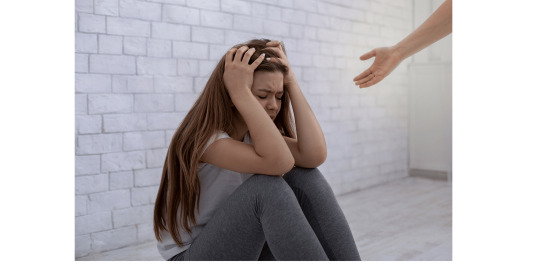
Overcoming the Unseen Battle: A Guide to Coping with PTSD Symptoms
Introduction
A. Explanation of PTSD
PTSD is a mental health problem that can happen after a traumatic event. PTSD is a complicated disorder that affects people differently. It can cause intrusive thoughts, nightmares, flashbacks, and intense anxiety. PTSD can significantly affect a person's daily life, relationships, and overall well-being.
B. The importance of understanding PTSD
Understanding PTSD is crucial for several reasons. First, it lets people with symptoms know they are not alone and their experiences matter. It also helps remove the shame of mental health and encourages seeking help and support. If you understand PTSD, you can help and support those affected by it.
Understanding PTSD: Symptoms and Causes
A. Definition of PTSD
PTSD is a mental disorder. It happens after a traumatic event like war, disasters, or assault. Four main groups can divide the symptoms of PTSD. People with this condition may have unwanted thoughts. They may avoid certain things. They may feel down. They may startle easily.
B. Symptoms of PTSD
People with PTSD may experience symptoms such as intrusive thoughts, bad dreams, worry, and anger. They may also have trouble sleeping, focusing, and be hyperaware. Additionally, they may try to avoid reminders of the traumatic event.
C. Causes of PTSD
A wide range of traumatic events can cause PTSD. Events that can cause trauma include combat, assault, accidents, disasters, violence, and illness. The severity and duration of an event, as well as a person's support system, can cause PTSD.
The Impact of Trauma on Mental Health
A. Effects of trauma on mental health
Experiencing trauma can have a profound impact on an individual's mental health. It can lead to mental health issues such as depression, anxiety, substance abuse, and dissociation. Trauma can also affect an individual's self-esteem, ability to trust others, and overall sense of safety and well-being.
B. Common mental health disorders associated with trauma
Besides PTSD, trauma can contribute to the development of other mental health disorders. PTSD often comes with depression. People feel sad, hopeless, and lose interest in things they liked. Traumatic experiences can lead to anxiety disorders like generalised anxiety or panic disorder. Many people with trauma turn to drugs or alcohol to cope, which is a common issue.
Seeking Professional Help: Therapy and Medication
A. Types of therapy for PTSD
Therapy is a crucial component of treating PTSD. There are many therapies that can help reduce symptoms and improve overall well-being. One therapy that helps with traumatic events is Cognitive-Behavioural Therapy (CBT). CBT focuses on finding and changing negative thoughts and behaviours. EMDR is a type of therapy that uses bilateral stimulation. It helps process traumatic memories and reduce distressing symptoms.
B. Medications for PTSD
Sometimes, medication may be prescribed to help manage the symptoms of PTSD. Doctors often prescribe antidepressants like SSRIs or SNRIs to help with depression and anxiety. Other medications can help manage nightmares and sleep disturbances associated with PTSD.
Coping with Flashbacks and Nightmares
A. Definition of flashbacks and nightmares
Flashbacks are strong memories of a bad event that can feel like it's happening again. Nightmares are distressing dreams that often involve elements of the traumatic event. Flashbacks and nightmares are very distressing and can greatly affect someone's daily life.
B. Coping strategies for flashbacks and nightmares
There are several coping strategies that can help individuals manage flashbacks and nightmares. To come back to reality during a flashback, you can use grounding techniques. These techniques include focusing on the present moment or doing sensory activities. To have fewer nightmares, try doing calming things before bed, like deep breathing or relaxing your muscles.
Dealing with Hyperarousal and Anxiety
A. Definition of hyperarousal and anxiety
People with PTSD often experience hyperarousal, which is an increase in mental and physical activation. You may feel cranky, have trouble sleeping, be on high alert, jumpy, or always on edge. PTSD often causes anxiety. This includes excessive worry and restlessness. It also includes racing thoughts and physical symptoms such as a fast heartbeat or shortness of breath.
B. Coping strategies for hyperarousal and anxiety
There are several coping strategies that can help individuals manage hyperarousal and anxiety. Engaging in regular physical exercise can help reduce tension and promote relaxation. You can also use deep breathing, mindfulness meditation, and muscle relaxation to calm your nerves and reduce anxiety. Getting help from a therapist or support group can give people tools to handle anxiety.
Managing Triggers and Avoidance Behaviours
A. Definition of triggers and avoidance behaviours
Triggers remind people with PTSD of their trauma and can cause strong emotional or physical reactions. Avoidance behaviours are ways people avoid things that remind them of the trauma. These actions may help for a short time, but they can also make the fear and anxiety from the event worse.
B. Coping strategies for triggers and avoidance behaviours
To manage triggers and avoidance, you slowly confront and deal with the upsetting memories and emotions. Exposure therapy can reduce fear and make people less sensitive to their triggers. It involves gradually exposing them to their triggers in a safe environment. Learning healthy ways to cope, like deep breathing or grounding, can help manage reactions to triggers.
Building a Support Network: Friends, Family, and Community
A. Importance of a support network
Having a strong support network is crucial for individuals with PTSD. Friends, family members, and community support can provide understanding, empathy, and validation for the individual's experiences. A support network can also offer practical assistance, such as helping with daily tasks or accompanying the individual to therapy appointments.
B. How to build a support network
To build a support network, reach out to trusted friends and family. Share your experiences with them. You can also try support groups or online communities to connect with others who understand. Building a support network takes time and effort but can provide invaluable support during the recovery process.
Self-Care Strategies: Exercise, Nutrition, and Relaxation Techniques
A. Importance of self-care
Self-care is essential for individuals with PTSD as it helps promote overall well-being and resilience. Taking care of yourself can lower stress, boost mood, and increase self-esteem. It is important to prioritise self-care and make it a regular part of one's routine.
B. Self-care strategies for PTSD
Regular exercise like walking, yoga, or swimming can help lessen PTSD symptoms and boost mental health. Eating a balanced diet that includes nutrient-rich foods can also support mental well-being. Practising relaxation techniques such as deep breathing, meditation, or engaging in hobbies or activities that bring joy and relaxation can help individuals manage stress and promote self-care.
Overcoming Stigma and Shame: Addressing Mental Health Taboos
A. Stigma and shame associated with mental health
There is still a significant amount of stigma and shame associated with mental health conditions, including PTSD. The stigma stops people from seeking help, which makes them feel more alone and upset. We must challenge stigmas and create a culture of understanding and acceptance for mental health.
B. How to overcome stigma and shame
To overcome stigma and shame, you can learn about mental health. Challenge negative beliefs and share your experiences. Sharing personal stories can reduce stigma by showing the human side of mental health conditions. It is also important to seek support from understanding individuals who can provide empathy and validation.
Moving Forward: Finding Meaning and Purpose After Trauma
A. Importance of finding meaning and purpose
Finding meaning and purpose after trauma is an essential part of the healing process. It allows individuals to move forward from their traumatic experiences and create a fulfilling life despite their past. Finding meaning can provide a sense of hope, resilience, and motivation for the future.
B. Strategies for finding meaning and purpose
Finding meaning and purpose after trauma involves exploring one's values, passions, and goals. Engaging in activities that align with these values and goals can help individuals find a sense of purpose and fulfilment. You can also find meaning and purpose by volunteering, pursuing hobbies, or being creative.
Conclusion
A. Recap of key points
PTSD is a complex mental health condition that can develop after experiencing or witnessing a traumatic event. It can have a significant impact on an individual's mental health and overall well-being. It is important for people with PTSD and their loved ones to understand the disorder.
B. Encouragement to seek help and support
If you or someone you know is experiencing symptoms of PTSD, it is important to seek help and support from a mental health professional. You can get treatments that help manage symptoms and make you feel better. Remember, you are not alone, and there is support available to help you on your journey to recovery.
#ptsd#ptsdrecovery#ptsdawareness#PTSDawareness#MentalHealthMatters#TraumaRecovery#PTSDsupport#HealingJourney#MentalWellness#SelfCare#Mindfulness#MentalHealthWarrior#YouAreNotAlone#EndTheStigma#PTSDcommunity#MentalHealthAdvocate#Wellbeing#SelfLove#PositiveVibes#InnerStrength#Resilience#TherapyWorks#HopeAndHealing
0 notes
Text
DAY II: THE RECOVERY MANIFESTO (redux)
00:34
DAY 2
-I woke up startled at 6 am having NO idea where I was.
-I then realized and proceeded to have a panic attack
-Hopped in the shower: half panicking. half crying & the rest chanting 😭
-I then did my spiritual practices in order to cleanse & purify my space.
- I was late to not only breakfast but lunch too. 😳 (lack of diligence with my time was never really my strong point..
I run off Daniella time -‘and my mantra is- “time doesn’t exist, clocks exist” is my general unmedicated ADHD answer to living life
- I was put on a new medication that allegedly treats both PTSD & ADHD 😮😮😮 (it’s a nighttime med; meaning I took it at 9pm Tuesday evening).
- met my doctor, who seems really wonderful (unlike the idiot I had at the last clinic). *knock on wood*
- was told off for going outside my
“Area” to get some sticky date pudding (I didn’t know i wasn’t allowed in the dining room!)
- also had my blood test and ECG done
- met a few people..
-ate meat for dinner (my anemia is even worse than before
#ptsdawareness#mentalillnessawareness#mentalhealthmatters#mentalhealthwarrior#mentalhealthsupport#mentalhealth#mentalhealthawareness#ptsdrecovery#mentalhealthadvocate#ptsd#mentalillness#endthestigma#hospital#cptsdrecovery#adhd#adhdawareness#psychotherapy#mentalhealthcare#mentalhealthblogger#the recovery manifesto#cptsd recovery#trauma informed#healing trauma#dissociation#trauma
0 notes
Text
One day, you'll realise that you were always blossoming, even when you didn't notice it.

#mentalhealth#mentalhealthawareness#mentalhealthmatters#mentalillness#mentalhealthrecovery#mentalhealthsupport#mentalwellness#mentalhealthwarrior#mentalhealthweek#mentalhealthcare#onlinecounselling4u#selfcare#selfrespect#selflove#selflovequotes#selfdefense#selfietime#selfawareness#selfworth#self#counselling#therapy#onlinetherapy#psychologists#counsellor#calmdown#life#heal#care
0 notes
Text
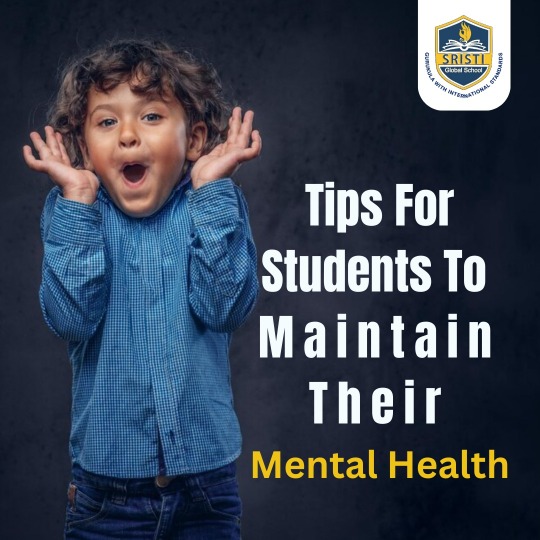




Your mental well-being is important! Prioritizing self-care and creating healthy coping mechanisms is essential for students. Adopt these helpful suggestions if you want to succeed academically, emotionally, and mentally.
Implementing these tips into your daily life can help you maintain a positive mindset, cope with stress, and thrive academically.
#SristiGlobalSchool#stress#recreationalactivities#mentalhealth#mentalhealthawareness#mentalhealthmatters#mentalhealthrecovery#mentalhealthsupport#mentalhealthadvocate#mentalhealthwarrior#mentalhealthawarenessmonth#mentalhealthquotes#mentalhealthblogger#selfcare#healthyhabits
0 notes
Text

Looking for a passionate men's mental health advocate? Our mission is to raise awareness and promote positive mental health among men. As dedicated advocates, we strive to break the stigma surrounding men's mental health and provide support, resources, and encouragement.
#MensMentalHealth#MentalHealthAdvocate#BreakTheStigma#MentalWellness#EmotionalWellbeing#MentalHealthAwareness#MensHealthMatters#PositiveMentalHealth#SelfCareForMen#SupportForMen#MentalHealthResources#MindfulnessForMen#MensMentalHealthMatters#EndTheSilence#MentalHealthSupport#MensWellbeing#SpeakUp#MentalHealthWarrior#MensHealthMovement#MentalHealthCommunity
0 notes